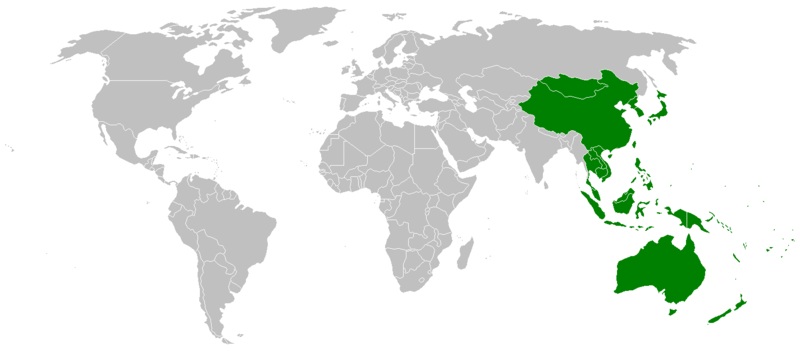When a credit card transaction is denied outside of its owner’s home country, up to 80 percent are false positives.
Mastercard is now using geolocation technology in order to help to reduce the frequency of “false positives” that are occurring when one of their customers has attempted to use his or her card in a legitimate way, but has had the transaction denied as it registers as potentially fraudulent.
This is an opt-in service that allows a customer to be matched with his or her location to validate a transaction.
This service uses the geolocation technology in a customer’s smartphone so that when they leave their home country and attempt to use their credit card, their location can be confirmed as being the same as that of the transaction, so that the purchase will not be flagged as a potentially risky one and a false positive can be avoided. For this program, MasterCard is working with Syniverse, an IPX provider, which has access to over six billion individual mobile subscribers who are located in over two hundred different countries.
The goal of this use of geolocation technology is to use mobile security methods to boost transaction authentication.
 According to the CMO of Syniverse, Mary Patterson Clark, “We’re providing an additional layer of fraud protection for when a consumer is on the road.” She added that “Over and above the existing fraud protection, [MasterCard is] offering this additional opt-in fraud protection offer to their customers.”
According to the CMO of Syniverse, Mary Patterson Clark, “We’re providing an additional layer of fraud protection for when a consumer is on the road.” She added that “Over and above the existing fraud protection, [MasterCard is] offering this additional opt-in fraud protection offer to their customers.”
What Clark described was a system in which the MasterCard certificate generates a token and then sends it to the platform that has been enabled by that credit card giant and Syniverse. With this, Syniverse is able to compare the location of the MasterCard and the location of the user at his or her last registration update. If those two positions are nearby, then the transaction will not be flagged as potentially fraudulent.
The company is not only hoping to continue with the reduction in false positive identifications of fraud that it has already been achieving through this geolocation technology, but it will also use it to help to make it easier for travelers to purchase prepaid data packages while they are away from home.
The use of this tech is estimated to grow from $1.57 billion, this year, to a tremendous $11.25 billion in 2019.
A recent report focused on the use of services that are based on geolocation technology has shown that the Asia pacific market is going to experience a massive amount of growth in this area.
The report was called the “Asia Pacific Location Based Services (LBS) market report” by MicroMarket Monitor.
The market for geolocation technology based services within the Asia Pacific region is going to experience a CAGR of 48.2 percent, said the report, which predicted a total this year of $1.57 billion, this year, but $11.25 billion in five years from now. This includes a full range of different types of services, including the mobile marketing techniques that are rapidly rising in popularity as it provides firms the opportunity to reach consumers at exactly the moments in which consumers are near a store, or even near a specific product within a store making ads relevant and hyper local.
That said, geolocation technology use goes a lot further than mobile marketing all on its own.
 The range of different uses that were included in within this report included navigation and travel, geo-social networking, real estate and retail searches, as well as location based marketing and advertising. As the number of smartphone users rises, these technologies that are typically compatible with the standard mobile device are being used by an even increasing range of applications.
The range of different uses that were included in within this report included navigation and travel, geo-social networking, real estate and retail searches, as well as location based marketing and advertising. As the number of smartphone users rises, these technologies that are typically compatible with the standard mobile device are being used by an even increasing range of applications.
The Asia Pacific region is, in fact, the area in which location based services are experiencing the highest growth in the world. Moreover, it also holds a 19.1 percent share of the entire global market for this tech, this year. This is, in part, because the governments of many of the countries in that region, including Japan and China, are greatly dependent on location based services in order to make supply chain management easier.
Moreover, as geolocation technology continues to advance and evolve, private organizations within this region have also been stepping into this area in order to help themselves with such issues as operational efficiency. It is expected that in five years from now, this region will hold a share of 27.8 percent of the global market, said the report.
 According to the CMO of Syniverse, Mary Patterson Clark, “We’re providing an additional layer of fraud protection for when a consumer is on the road.” She added that “Over and above the existing fraud protection, [MasterCard is] offering this additional opt-in fraud protection offer to their customers.”
According to the CMO of Syniverse, Mary Patterson Clark, “We’re providing an additional layer of fraud protection for when a consumer is on the road.” She added that “Over and above the existing fraud protection, [MasterCard is] offering this additional opt-in fraud protection offer to their customers.”
 The range of different uses that were included in within this report included navigation and travel, geo-social networking, real estate and retail searches, as well as
The range of different uses that were included in within this report included navigation and travel, geo-social networking, real estate and retail searches, as well as 